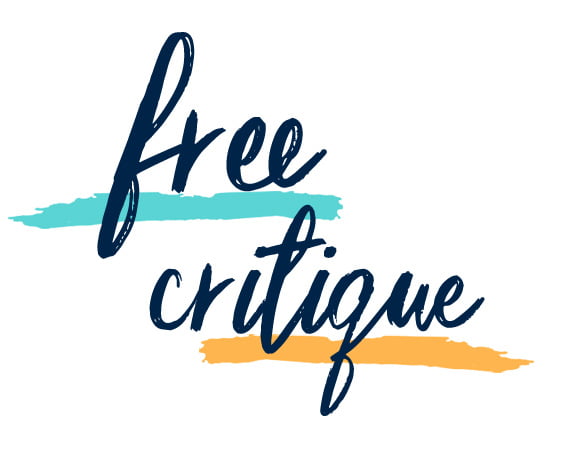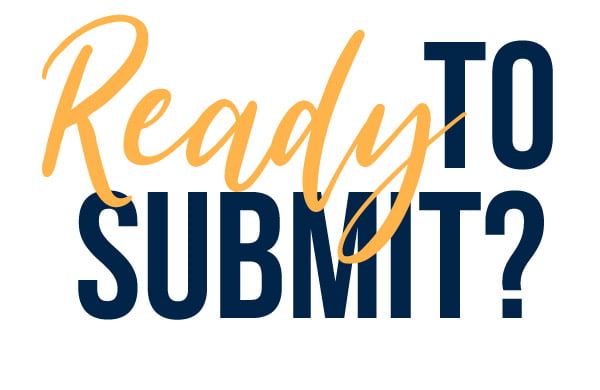
Here at Vanilla Grass, we want writers to succeed and we’re willing to sacrifice our time to help improve literature by coaching one author at a time. You can see why we care in our Changing the World One Voice at a Time post and this section on why first-pages matter.
If you’d like to submit your own document for critique, then go to our Free Critiques page.
All submitted first pages are anonymous and we follow the same critique guideline on each.
Whether you submit or not, you can learn much from the critiques we post. For a full list, click here. Each posted first-page has been read and evaluated by both Carolyn (C) and Dedra (D).
And sometimes, they don’t agree! But that’s why multiple opinions are so important. One reader might love what you write and another might not care for it. Same with editors. So read the commentary, and tailor it to what you’re seeking to accomplish with your manuscript!
Here at Vanilla Grass we approach critiques by asking if the author met certain criteria and by focusing on their strengths and weaknesses in a question, answer formatted response. At this time, we don’t focus on line-editing, as we believe it can distract from the more important issue of content quality.
First-Page #104
I was out there on the front steps of the new house, just sitting there, doing nothing, kicking with my toes at the grass growing through the cracks in the sidewalk. I was dusty from working all morning, and I felt like I was melting. No, not melting. Sublimating. Late August afternoon heat, and the air so dry that a young woman like me can’t even glow — just evaporates before it can even begin to make your skin glisten.
When my mother and I moved here from South Dakota last week, my father’s things were conspicuously absent from the moving van. He said he needed to stay behind to clean things up and sell the house. But he didn’t send a single box of his stuff with us.
Mom says it’s because he’s a geek and an ascetic. He literally owns nothing that he doesn’t use every day. I’m not so sure. They’ve been having a lot of arguments, and it seems like, at least half my friends back home, their parents are divorced now.
He did let me bring the servers I do most of my work on, to use here. His servers, of course, are there. It just feels so strange logging in to his research servers remotely.
Oh. I’m a geek, too. I set up the new computer room here in the extra bedroom. All by myself. False floor and walls, insulation, air conditioning, wiring. I did it.
The county inspector was surprised when he asked who had done the work, but I showed him my apprentice papers and Dad’s plans that I worked from.
Critique #104
Greatest strength:
C: I think your greatest strength is your voice and tight POV. The reader jumps straight into the main character’s mind and doesn’t budge an inch, so good work.
D: Voice, for sure. I hear it in the first few words and you carry it the whole way. Great job.
Character development:
C: You have the most important piece for a book beginning: a reason to relate to the character. Her separation from her father and the grown-ups fibbing about it creates a reason for the reader to care and sympathize with the main character. A name would be helpful, though. It’s hard to care about an “I.”
D: I love how she’s thinking through all the details about what’s been happening, but she doesn’t say for sure that her parents are divorcing. It shows she has a tiny bit of hope still, but I don’t understand her yet. She’s concerned about her skin glistening and building servers. She doesn’t fit into a typical nerd role so if you’re trying to break a stereotype, embellish it. Show us that she’s breaking the norm.
Tension:
C: There’s a little bit with her missing her father and surfing his servers without him, but that’s all I have. I was drawn in at first by wondering what she was waiting for sitting on the front porch, but then we never learned what that was, so I felt let down. There’s also quite a bit of exposition about her skills and the servers and the county inspector that I don’t feel the reader needs to hear about at this juncture. We need to care about her, and saying she feels weird surfing her dad’s servers without him lets us know she’s techy without maybe needing to know the rest.
D: There’s tension between the parents in the backstory, but it doesn’t relate a lot to your MC. Parents choose to stay or go, not the kids. I would love to see something more going wrong that’s in her control or seeing why her dad not being there affects her.
Emotions:
C: I caught some sadness about the father not being there and some pride in the main character’s skill set. And the feeling of melting which was written so well but then didn’t go anywhere. What’s worth waiting on a porch as you melt into a puddle? I don’t know because it never came up. Maybe you’re getting to it, but moving what she’s waiting for up would be helpful. Or having her fret more about it so we know why it matters.
D: I catch a little hope that her Dad might come back, and a little sadness that he might not, but she doesn’t seem overly concerned. Ratch up the tension and we’ll feel even more.
Audience:
C: YA because she’s a young woman, right?
D: Young Adult
Genre:
C: Not sure. I’m thinking contemporary, maybe sci-fi because she’s a techy. Though I haven’t seen any indication of futuristic tech.
D: I’m guessing contemporary.
Triggers & Delays (Reasons to Keep Reading):
C: I’m still waiting to know what she’s waiting for on the porch and why she’s waiting for it, but the fact that you started with it and then meandered has me waiting impatiently, not excitedly, which is perhaps not the right reader response to be hoping for.
D: I’m not seeing any yet. Give me a hint at something you’re going to tell me or something the character is going to do and then deliver. Tease us, but then tell us the answer soon so we will trust you as the author and keep reading. Give us a reason to want to turn the page.
Tone:
C: Nostalgic/reminiscent. I want to say anticipatory so badly, because she’s waiting, but I just don’t get the anxiety or emotions for that.
D: The first paragraph gave me the same feel as To Kill A Mockingbird. I imagined the character kicking up her heels on a porch swing with a glass of lemonade and the main drama coming from a neighborhood secret. But then you switch gears into a metal and plastic world of technology that doesn’t seem to jive with the opening scene, and mixed in between we have a tiny glimmer of hope, but maybe a heaping of “I don’t care.” It’s okay to have more than one tone, but pick what you want us to feel and make it apparent.
Main Character Goals:
C: I’m not sure what her goals are.
D: I don’t know what her goals are either.
Where to focus energy:
C: I would pick up the pacing and cut some of the exposition/telling and instead bring out more emotion for the character.
D: Give me a reason for that heat scene at the beginning. Every description should have a purpose, adding to the emotions of the character, setting the tone. I want to understand why she is concerned about her skin not glistening because the next paragraph switches gears. I would love to see each of these paragraphs flow into each other, threading together her goal. Give me a hint of it at least. Why is she setting up the servers? Are they despicable hackers? Spies. Online journalists? Give us a few more concrete details, emotions, and tensions so we will want to turn the page.

If you’d like to submit your own document for critique, then go to our Free Critiques page.
What did you think? Do you agree with the critique? Would you keep reading? Tell us in the comments! Then send us your own manuscript!
